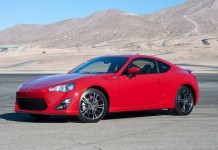Toyota readied an announcement Monday on repairs for millions of recalled vehicles affected by faulty accelerator pedals, as executives of the world’s biggest carmaker went into damage-control mode.
Toyota is halting US production this week of eight models to produce newly designed accelerator pedals. At the same time it is finalising a fix for vehicles already on the road affected by the massive recall.
The issue has been a public-relations nightmare for the Japanese giant, whose executives were set to launch a charm offensive Monday to try to limit the damage to the company’s vaunted reputation for quality and safety.
Toyota’s US arm was due to issue a statement at 1130 GMT on a fix for the vehicles, a company spokesman said.
Related article: Ford’s China production resumes after pedal review
Jim Lentz, president of Toyota’s US sales arm, was to give a video message and hold a teleconference with media. And Lentz was due to appear on NBC’s “Today Show” in the United States, Dow Jones reported.
Toyota pulled up to 1.8 million vehicles in Europe on Friday, the latest in a series of recalls that has affected almost eight million Toyota cars worldwide — more than its entire 2009 global sales of 7.8 million vehicles.
Related article: Japan’s carmakers must restore reputation, says media
The company said that in rare cases, the pedal mechanism could become worn and harder to depress, or get stuck in a partially depressed position.
Toyota engineers have been putting the finishing touches to a repair to insert a “spacer” in the pedal mechanism, in order to increase the tension in a spring and reduce the risk of the pedal staying down.
Toyota, which overtook General Motors in 2008 as the top-selling automaker, has been beset by a series of safety issues that critics say raise questions about whether it sacrificed its legendary quality to become number one.
Toyota published an advertisement in US newspapers Sunday explaining that the company has stopped production of the eight models for a week because of the sticking pedal.
“Why have we taken this unprecedented action? Because it’s the right thing to do for our customers,” the ad said. “We believe we are close to announcing an effective remedy.”
Toyota’s president Akio Toyoda kept a low profile last week as the company, founded by his grandfather more than 70 years ago, battled to contain the fallout.
In his first public remarks since the recall went global, the Toyota family scion gave a brief apology to a Japanese television crew on Saturday.
“We’re extremely sorry to have made customers feel uneasy,” Toyoda told public broadcaster NHK on the sidelines of the Davos forum in Switzerland.
The 53-year-old boss — named a year ago to steer the Japanese automaker through the global economic downturn — faces perhaps his biggest challenge yet handling the safety recall.
His silence on the issue last week has raised eyebrows in Japan, where the only statement issued by Toyota’s headquarters since the recall went global related to a tree-planting project in the Philippines.
Toyota’s shares suffered another drop Monday, declining 1.1 percent to 3,450 yen. The stock plunged about 14 percent last week.
In another hit to Japanese makers’ reputation for safety, Honda recalled 646,000 of its cars worldwide Friday due to a potential fire risk linked to a window-switch problem that is reported to have killed a child in South Africa.
Honda shares slid 2.5 percent to 2,999 yen.
France’s PSA Peugeot Citroen said Monday it would recall 97,000 Peugeot 107s and Citroen C1s made in a Czech factory it shares with Toyota.
It said the recall was a precautionary measure and affected European car owners who would be informed of the problem by mail.
The compact models are exclusively produced in the plant in the Czech town of Kolin, and are chiefly destined for European markets, a PSA spokesman said.
Ford’s joint venture partner in China said Sunday it had resumed production of light buses, after a review of accelerator pedals made by the same US parts supplier involved in Toyota’s worldwide recall found no problems.








